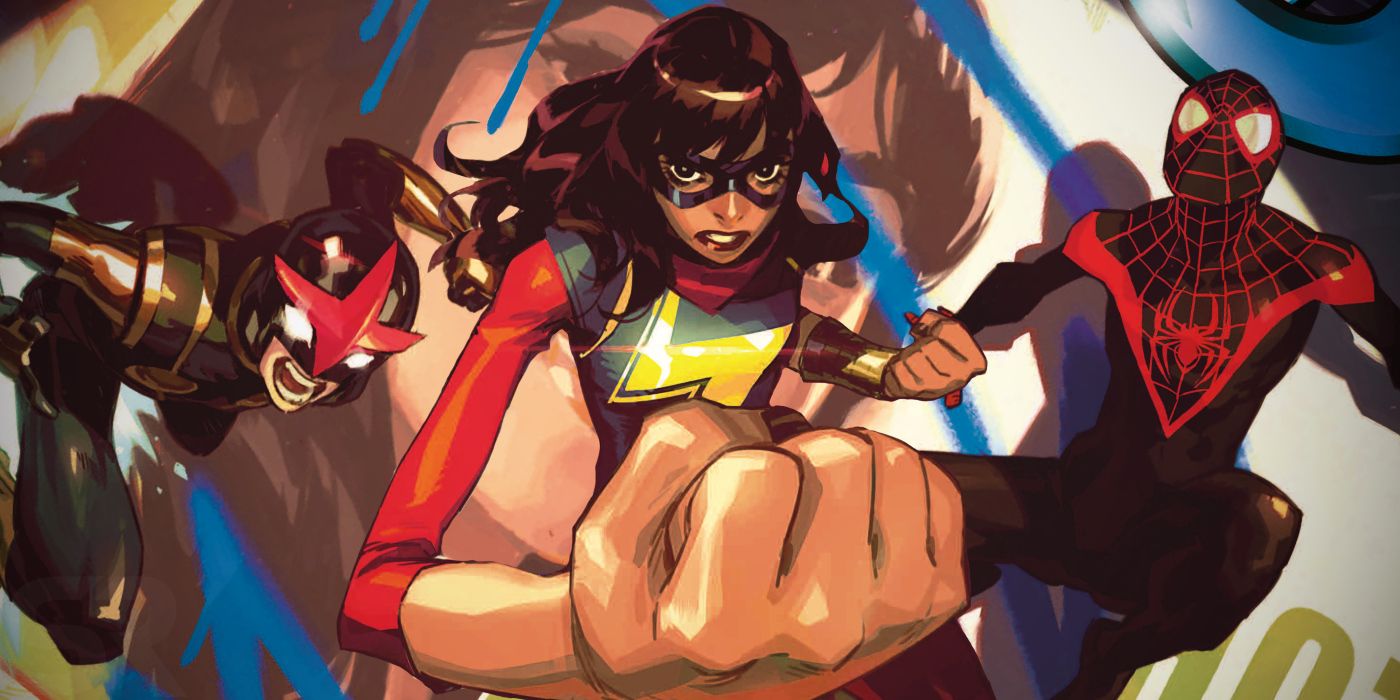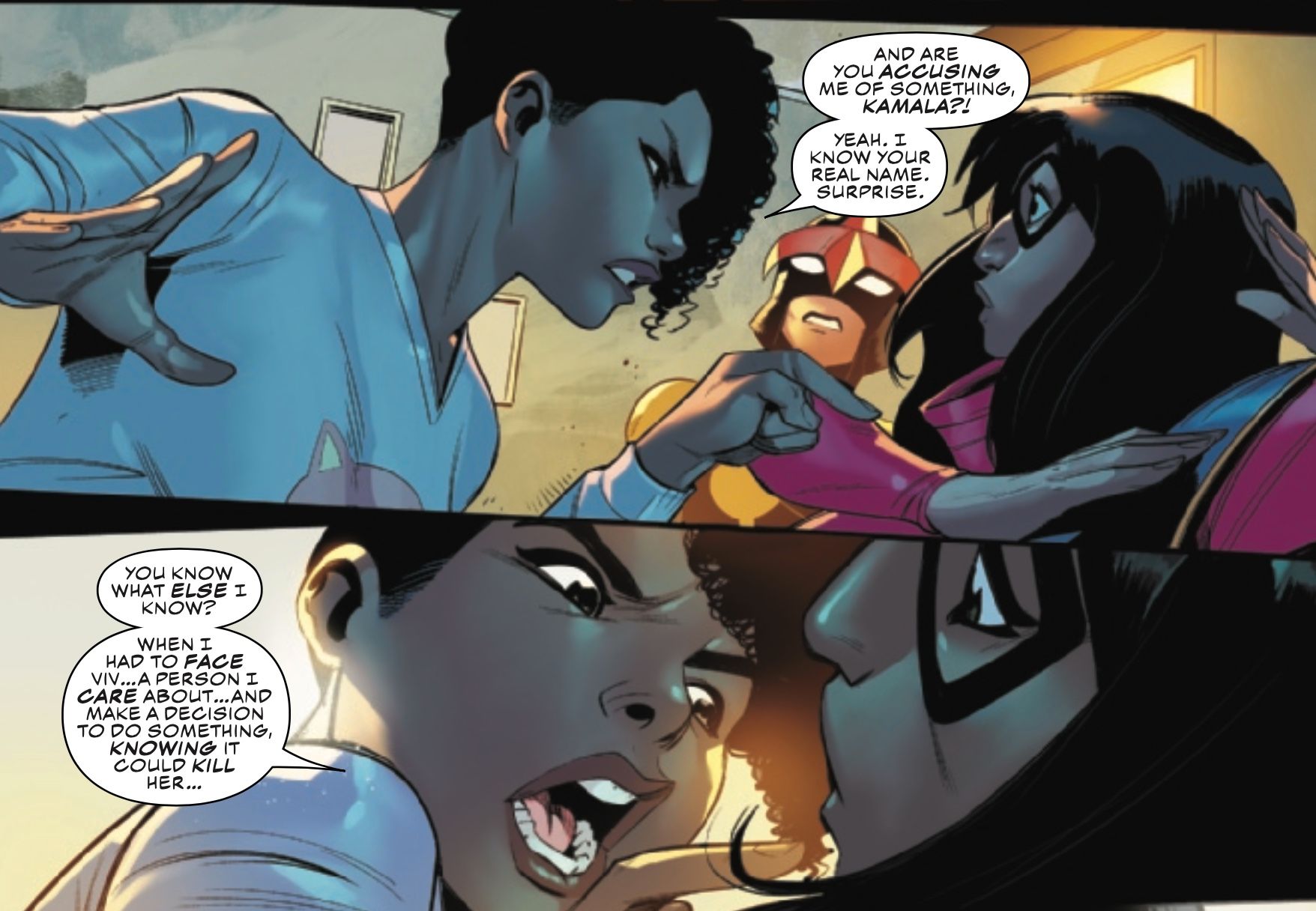Warning: Spoilers for Champions #2 are below
Secret identities are a mainstay of superhero lore, but they have just become even more vital for Marvel Comics' youngest cohort of heroes, the Champions. Composed of characters such as Ms. Marvel (Kamala Khan), Nova (Sam Alexander), Spider-Man (Miles Morales), and Ironheart (Riri Williams), the Champions are a distinctive team due to the fact that they are all teenagers having to balance being a superhero alongside the difficulties of growing up. And as recent events in Champions #2 have revealed, their secret identities are now not only a point of contention for their lives as heroes but also for their own coming of age stories. In other words, Marvel has made the case for the narrative power of secret identities through spotlighting their unique role in coming of age stories.
Spearheaded by Stan Lee's The Amazing Spider-Man run, secret identities are an integral part of coming of age superhero comics because of the intersections between the superhero genre itself and the historical coming of age literary genre. Protagonists in coming of age stories must negotiate between their personal lives and the expectations put on them by their culture. The protagonist comes to be an adult in their community through their internalization of its social values. For superheroes with secret identities, this conundrum is played out even more dramatically through their secret identity representing their private life, and their superhero identity occupying the realm of the public. Their struggles to meet the needs of both their civilian life and their duties as heroes are thus a reenactment of the traditional coming of age story.
Marvel's current story for the Champions takes this split between public and private life even further through the Outlawed storyline. When an environmental activist the Champions were tasked with protecting was attacked while speaking at a high school, the team was faced with their toughest obstacle yet when one of their members, Viv Vision, seemingly died while Kamala Khan was gravely injured. In response, teenage superheroes were banned by the government in an act called "Kamala's Law," named for Khan, who, unbeknownst to the government, is an underage superhero herself. In defiance of the law, the remaining Champions continued their duties as superheroes.
Champions #2 illustrates the immense strife that the act has caused on the team, highlighting the difference in opinions between them on what to do next. Written by Eve L. Ewing with art by Simone Di Meo and Bob Quinn, color art by Federico Blee, and letters by VC's Clayton Cowles, Ironheart tells the Champions that she no longer wants to be part of their team. Worse, Ironheart also reveals that she knows Ms. Marvel's real identity as Kamala Khan, and is exasperated that the government knows her secret identity as Riri Williams while the rest of the team remains incognito.
Here, the conflict at the heart of the matter - secret identities - has never been more relevant for the character development of these young heroes. By arguing with each other and expressing their individual concerns, the members of the Champions are going to emerge as more mature heroes because they are directly acting out the tension between public and private life that is so central to the coming of age genre. The drama of the Outlawed storyline could only work with young heroes because the scrutiny applied to them as superheroes match the scrutiny placed on them as young adults in their communities. The struggle at hand over maintaining their private identities is even more urgent when they are still in the process of finding out who they are in the first place.
Outlawed depicts the struggles of teen superheroes in a world that wants to cap the limited sense of agency they already have. Their secret identities are not only a marker of their lives as superheroes but also as young adults. In dealing firsthand with the ugly reality of public superhero work, the Champions are on their way to becoming Marvel's next generation of superheroes.


